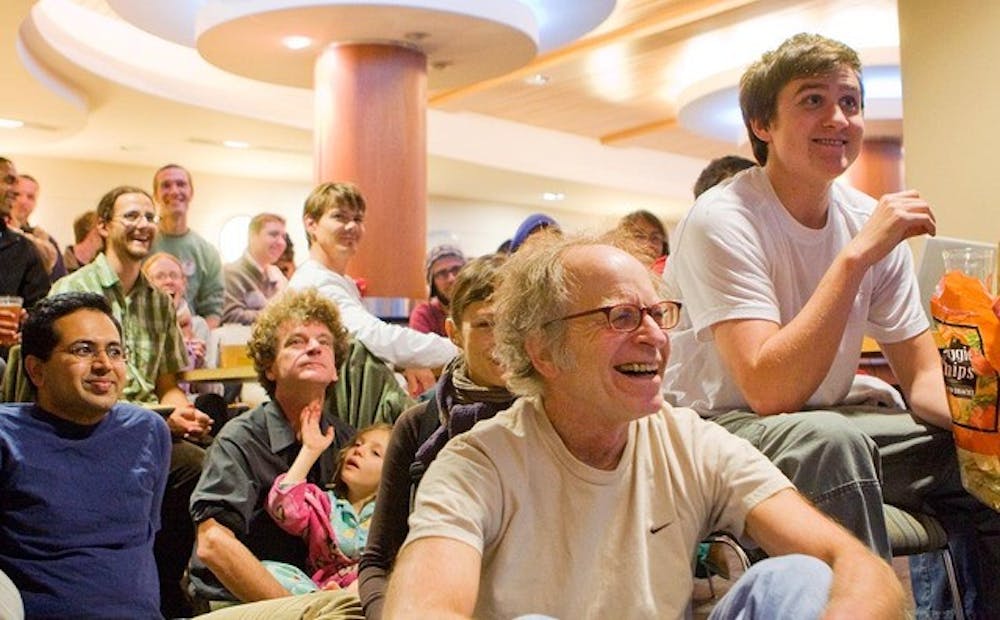Campus does not ring with the protest that it once did. The students who marched against an 18 percent tuition hike are gone, and they do not appear to have been replaced. There is confusion and dislocation among the groups that do manage to make themselves visible above the surge of complacency, and rising tuition and its related effects appear to be hampering any renewal of the activist movement. The fragmented Left is not unsalvageable, but the issues it finds itself up against simply cannot be ignored.
The possible reasons for a drop in both activists and protests are many, varied and probably impossible to determine with any certainty, but time, apathy and economics certainly are large factors in the equation. The affluent proportion of campus is rising as protest is dropping, and while there may be no correlation there, it is not ridiculous to consider the possibility that they are linked. Each tuition hike prices out another set of students who come from poor or middle-class backgrounds and makes it harder for those already here to stay.
While many students work for spending money, others work because they come from a family that can not afford the tuition, fees and all the rest that comprise paying for a UW-Madison education. Many are struggling to make ends meet, paying rent and buying food and perhaps trying to afford the chance to occasionally go out with their friends.
Someone forced by economic circumstance to work two jobs while attending class full-time is not particularly free to become deeply involved in activist causes. Even so, these same students are more likely to actually be involved in protests than the average student.
Other students choose studying over activism and go to class rather than protest. Whether it's pure academic drive, or guilt over wasting the $50 of tuition they paid to attend a class, they find their academic progress more important than social causes. Perhaps some are simply apathetic about any causes that don't affect them.
Today's culture is certainly more focused on the individual than that which spawned the great protest movements of the '60s and '70s. Perhaps there's truth behind the view of the \Millenials,"" the children of the '90s who left high school starting just at the turn of the century. They have been coddled and pampered by doting parents and consumer culture, and a fabulous economy to support it all. According to the stereotype, they don't know how to take care of themselves. If they remain shockingly dependent on their parents, how can they be mobilized to protest?
Maybe in the end protest and activism fall easily by the wayside because a majority believe that there is a slow and steady change on issues such as the acceptance of alternative lifestyles.
Progress may be slow, but somewhere approaching half of the public (depending on the poll) now thinks gay marriage is acceptable. This is a huge step forward from a few decades ago, when homosexuality was considered immoral. But this sense of complacency is ill founded, when individuals like Matthew Shepard are murdered for their sexuality. It may not be happening here, but it still happens. Just because things seem to be getting better on their own does not mean activism is no longer necessary.
Then there is the fragmented Left, on campus and beyond, who can't seem to bond together over even the most basic issues. They are too caught up in their own causes to devote time to others which might benefit from their attention. The closest to a united front that the liberals show these days is the ""Anybody But Bush"" call to action surrounding the upcoming presidential election season. Even there, the jostling crowd of candidates begs to be pared down so that some sort of unified push can be made. It will still be several months before that campaign can begin.
Is there any force that can bond these groups together into action?
Even Bush and company's attacks on civil liberties via the Patriot Act haven't managed to bring on an appropriate amount of rage. The anti-war movement in the 1960s gained an incredible amount of momentum following physical attacks against student protestors, such as the killings at Kent State University. There is no particularly strong ""us-versus-them"" mentality in the student culture of today, no fear of attack from authorities. Those who do think that way are called unpatriotic and face pressure from a seemingly ever more powerful conservative movement.
But for all this, and the effect of these problems on the student body, Madison is still an activist campus. There are actual protests. When mobilized here for national or international causes like the Iraq war, the protests are generally bigger than other schools. There are dedicated students traveling to Jefferson to show their solidarity with the Tyson workers. The climate is different from the 1960s, but some of the spirit still remains. It draws the socially conscious to Madison. It inspires those who are here to action. Student protest isn't dead... it's just at a lull.






